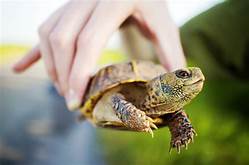Can You Own a Pet Crow?
Crows are fascinating creatures known for their intelligence and adaptability. Their ability to solve problems and use tools makes them popular subjects for research and study. While their intelligence and unique behaviors might entice some people to consider them as potential pets, there are several reasons why owning a pet crow may not be a suitable or advisable choice.

Legal and Ethical Considerations
1. Legal Restrictions:
In many countries and regions, there are legal restrictions that prohibit keeping wild animals as pets. Crows are typically classified as wild birds, and owning one without proper permits or licenses may be against the law. It is important to check the local regulations and laws before considering acquiring a pet crow.
2. Ethical Concerns:
Crows are social and intelligent animals that have evolved to live in their natural habitats. Taking them out of their natural environment and keeping them as pets raises ethical concerns. Crows require a lot of space, stimulation, and interaction, which may be difficult to provide in a domestic setting.
Behavioral Considerations
1. Intelligence and Curiosity:
Crows are incredibly intelligent and curious birds. Their intelligence may make them challenging to keep as pets. They can be destructive and may engage in behaviors that are undesirable in a domestic setting, such as stealing objects, damaging furniture, or making loud noises.
2. Social Behavior:
Crows are social animals that live in flocks. They rely on interactions with their flock members for survival and well-being. Keeping a solitary crow as a pet may lead to behavioral problems, anxiety, or depression due to isolation and lack of companionship.
3. Vocalization and Noise:
Crows are known for their loud and distinctive calls. While their vocalizations may be charming in the wild, they can be disruptive and annoying in a domestic environment. Crows may call excessively, especially during dawn and dusk, which can be problematic for neighbors or those living in close proximity.
Health and Safety Considerations
1. Zoonotic Diseases:
Crows can carry various zoonotic diseases, which are diseases that can be transmitted from animals to humans. These diseases may include avian influenza, salmonella, or cryptosporidiosis. Proper hygiene and preventive measures are essential to minimize the risk of disease transmission.
2. Biting and Aggression:
Crows have sharp beaks and claws that they use for defense and hunting. While they may not be aggressive by nature, crows can become defensive or aggressive if they feel threatened or stressed. Bites and scratches from crows can cause injury and infection.
3. Dietary Needs:
Crows have specific dietary requirements that may be difficult to meet in a domestic setting. They are omnivores that consume a variety of foods, including fruits, vegetables, seeds, insects, and small animals. Providing a balanced and nutritious diet for a pet crow requires knowledge and careful planning.
In conclusion, while crows are fascinating creatures, they are not suitable pets for the average person. Their complex behavioral and dietary needs, combined with legal restrictions and ethical concerns, make them challenging to keep as domestic companions. It is important to respect wildlife and appreciate crows in their natural habitats rather than attempting to own them as pets.
Declaration: All article resources on this website, unless otherwise specified or labeled, are collected from online resources. If the content on this website infringes on the legitimate rights and interests of the original author, you can contact this website to delete it.





